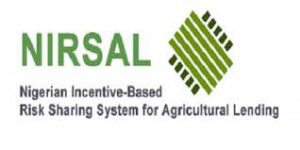
- Women Applicants Lament Extortionate Training Fees
When a Nigerian hip hop artiste recently sang about the problem of “audio money,” he definitely did not have laudable intervention funds provided by the Central Bank of Nigeria (CBN) for development finance in mind. However, the processes adopted by the downstream partner bank, which goes by the name NIRSAL Microfinance Bank (NMFB), even before the outbreak of the COVID-19 pandemic, have left several applicants frustrated. According to its website, NIRSAL MFB was incorporated as a Private Limited Company in 2019 and commenced operations following the grant of a license by the CBN to operate as a National Microfinance Bank. In fact, the many interminable hurdles potential beneficiaries have to cross in order to access loans have over stressed them to the point of characterizing the loans as “audio money.” With the COVID-19 pandemic taking a massive toll on businesses and households, it is the same NIRSAL MFB, which is being saddled with the responsibility to disburse COVID-19 intervention funds.
NIRSAL MFB’s atrocious record in disbursement of billions of Naira of intervention funds would be gleaned from its handling of the Agric Small and Medium Enterprise Scheme (AGSMEIS). It is an ongoing scheme through which the apex bank has worked towards providing loans to grow businesses in the country. The AGSMEIS is a voluntary initiative of the Bankers’ Committee approved at its 331st meeting held on 9th February, 2017. The Scheme requires all banks in Nigeria to set aside five percent of their profit after tax (PAT) annually to support the Federal Government’s efforts and policy measures for the promotion of agricultural businesses and SMEs as vehicles for sustainable economic development and employment generation.
For women, young entrepreneurs and others who intend to set sail into the world of business, the low interest credit from schemes like AGSMEIS present veritable opportunities to realise their dreams. With the CBN AGSMEIS Loan for instance, a budding entrepreneur with a smart business idea is supposed to be able access up to N10M at five percent interest per annum, without collateral. However, the laudable idea of the CBN begins to get complicated the moment the disbursement part, which is handled by NIRSAL MFB gets under way. Applicants have to go through a compulsory training by an Entrepreneur Development Institute (EDI), which is not a bad thing in itself. However, things begin to get curious when applicants are told to bear the cost of the training even with no guarantee that they will get the loans. The fixation on collection of training fees by the EDI has created an industry fleecing already impoverished loan applicants, who then go on to wait endlessly for NIRSAL MFB loans, which may never materialize.
For vulnerable and excluded groups like women who are already financially constrained by the economic realities in the country, the multiplicity of hurdles placed on their path have not allowed the AGSMEIS initiative achieve the desired impact. The Explainer and Platinum Post went on the trail of some applicants who shared their experiences. One of them Mrs. Linda James, a rice farmer and member of the Association of Women in Trade and Agriculture (AWITA). She stated she applied for the loan to acquire land for rice farming because land had been her constraint due to huge rent on the current land she is cultivating. All though Linda has crossed the first hurdle of going through the training, she has continued to wait endlessly for the loan itself.
She said, “I was privileged to be part of an all expenses paid 7-day training organised by the Ministry of Agriculture for Women in December 2019. I know that to qualify me for the CBN loan, one has to go through the training. I am still waiting the processing and hopeful of getting it soon.
“I need this loan because I pay over 200,000 per year for a six hectares farm land which I cultivate. The profitability of my farming therefore depends on a good harvest. Sometimes, the land can give me 30 bags of 150kg and more. I want to expand the business and I need to own my own land to be able to do that,” she added.
Linda informed that in the last five years, she has been farming rice; while her business is growing gradually, her main challenge remains the land ownership. “I rent the farm land I currently use for my rice farm and each year we are at the mercy of the land owners. I want to own a land of my own because it is safer and more lucrative. Another thing I fear is that the land owner may decide not to rent out the land next year or may decide to give it to a higher bidder.
“The training (by the EDI) only qualifies you to apply for the loan; when you apply you write your business proposal and that is what determines how much you will get. There are steps to writing the business proposal. The Micro Finance Banks are handling that now because it has been shifted to them by the CBN. I think this loan would be beneficial to women in agriculture if the money is released to us on time because the business of rice farming requires a lot of money,” she said.
Another member of AWITA Lynn Olisa, expressed concerns about the loan amount, saying there should be lower loan amounts to make it more inclusive.
She said: “The digits (loan amount) is too high and that is why the process of receiving it is difficult and discouraging. With the amount being given only a few women can access it.”
The farmer also faulted the practice whereby NIRSAL MFB, which is supposed to disburse the loans use training paid for by applicants as a prerequisite for applying. She lamented such demands further put the burden on the women to spend out of the little they have to pay for training which is not a guarantee for getting the loan.
“I am an agriculturist, a farmer and I know loans are available but the same amount is what is given to everybody. I think the loans for women should be different and there should be more opportunities for women to access funding. In the case of this loan, when you indicate interest, you are directed to go for a particular course which will cost you about 25,000.
“And after paying and attending, that doesn’t even guarantee you will get the loan. That kind of system is not encouraging. I know some members of AWITA were opportune to be part of free training last December but what about the other many women.” Lynn was of the view that the training that qualifies applicants to apply for the loan should be free. She asserted that a lot of women are working hard to put food on the table of their families and as such should not be asked to pay such amount for training before being short listed for loans.
Similarly, an Abuja based entrepreneur Hauwa Gimba, lamented the difficulty in getting the CBN loan, even after paying N25,000 for the training and submitting an application as well as business proposal. “When I heard of the loan opportunity I applied but I was asked to go for the training, for which paid N25,000. Despite all these, I have not been given the loan. My only consolation now is that at least I learnt the process of writing a business proposal,” she said. The entrepreneur called for the scrapping of the training fees, and creation of a time frame for accessing the loan. She said women have many business ideas but the lack of funding has remained the major obstacle.
The Explainer and Platinum Post gathered that despite not releasing funds to loan applicants, the NIRSAL is much more interested in pushing applicants to EDI to conduct endless trainings through which applicants are made to part with fees ranging from N10,000 to N25, 000. An email to NIRSAL Micro Finance Bank for data on the number of successful loan applicants has not been replied three weeks after. A visit to the NIRSAL website, www.nmfb.com.ng yielded no useful information about numbers of beneficiaries or reports of any impact assessment. 72 pictures posted in the photo gallery on December 13, 2019 show some beneficiaries without names or location smiling into the camera.
An invitation for an EDI trainings sighted by our reporter. It read: “Dear Loan Applicant, Thank you for your interest in CBN AGSMEIS LOAN. The CBN AGSMEIS Loan training is scheduled to hold as follows: Date: 2nd March 2020, Time: 9am – 1pm daily, Venue: Mallam Adamu Bello Auditorium, Agricultural Research Institute of Nigeria, Mabushi, Abuja. Pls, pay N10,000 as training fee to Nigerian Youth Chamber of Commerce. GTB 0200604869 to reserve your seat.” Such requests for payment for the training before loan application have led to several altercations between applicants and the respective institutions, leading to loss of confidence in the process.
Consequently, there have been worries that while the CBN may have laudable intentions as would be seen from its various development finance initiatives, serious oversight of the banks which do the disbursement is required. At a time the Corona Virus pandemic is ravaging the Nigerian economy, many believe the stimulus package injected by the CBN alongside loans with cheap interest rates should provide some relief for citizens.
Speaking on the issue, an economy analyst, Shola Ogunniyi was of the view that the CBN is committed to assisting some sectors and by extension workers in those sectors. “CBN loans will be essentially free because it will have very low interest rates and favourable terms to the borrowers. In some instances, some portions of the loans are free. So that fund (the stimulus package) will increase the quantity of money in the circulation and essentially inflation. The trade off is: we will have more inflation; but some people will have some lifelines.” These good intentions notwithstanding, the experience of applicants who have tried to access loans NIRSAL MFB has been far from palatable. Experts believe these deficiencies have to be fixed so that the laudable objectives behind CBN COVID-19 intervention funds can realised.
This COVID-19 Accountability Report is produced through collaboration between The Explainer and Platinum Post, with support of the Resource Centre for Human Rights&Civic Education (CHRICED) and Misereor KZE of Germany.























